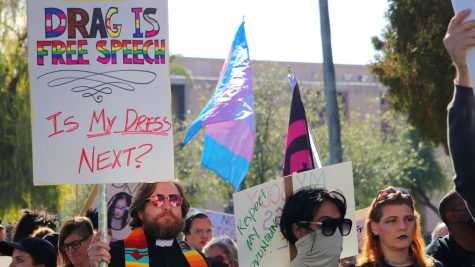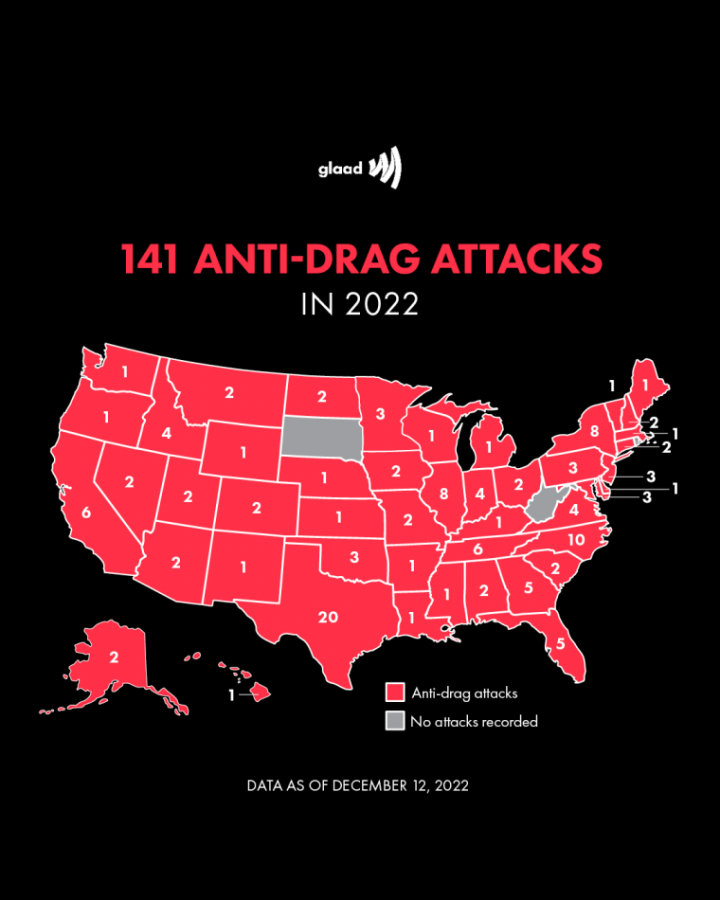Drag Show Bans
Map showing Drag ban bills
March 23, 2023
As of 2023, Drag show bans have swept the United states by storm, criminalizing drag especially in the presence of children. Not only do these overactive laws hurt drag performers but demonize the already discriminated LGBTQ+ community. The onslaught of threats and genuine attacks continue to ostracize trans and queer people, as anti-drag has proven to be just another problem emerging.
In 2023, Tennessee became the first state to limit drag shows, republican governor Bill Lee signed the law passing restriction of public drag show performances. The state senate of Tennessee banned drag along party lines to “adult cabaret performances” on public property as their way of “shielding children”, threatening violators with misdemeanors, or if done repeatedly, felonies. This pushes an agenda that is outwardly homophobic, discriminatory, and ill-educated which is an all too common problem. These problems create social issues and have caused major attacks against businesses, people, and events. One such incident that occurred was in November of 2022 in Oklahoma a bakery had a cocktail thrown at its store window after hosting a drag show. Later within the same month, a shooting occurred in Colorado springs during a drag performance, the shooting killed 5 people and injured more than 20 more. A month later republican right-wing groups the Patriot Front and Proud boys protested drag stories in Columbus Ohio armed and holding signs reading “groomers not welcome” and “groomers are child abusers’ ‘. Though these events are horrifying, they are all but too common. Towards the end of 2022 we have seen a rise in lawmakers creating bills in hopes of banning things like drugs in public or around minors, despite the fact that drug performers still happen while people are also fighting back.
Since the beginning of 2023 there have been 32 bills filed in Kentucky, Tennessee, Arizona, Arkansas, Iowa, Idaho, Kansas, Minnesota, Missouri, Montana, North Dakota, Nebraska, Oklahoma, South Dakota, Texas, and West Virginia. As these bills keep appearing and having uncomfortably large followings, anti-drag legislative bans have been very state by state though, but many of these bills share similar issues that certain groups of people believe to be important to prevent. This decades-old problem continues to harm large groups of people causing a beloved art form to be targeted while also leading to the debate of what drag is and how we judge who gets charged.



